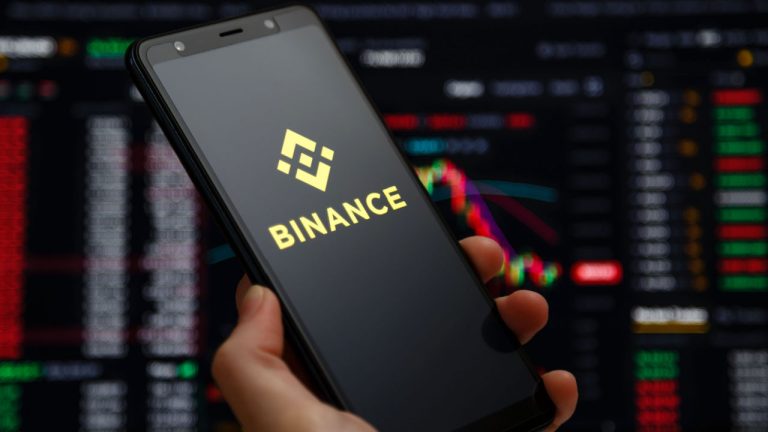Cardano’s Charles Hoskinson Clashes With Blockstream’s Adam Back Over Crypto Security Classification

Charles Hoskinson, co-founder of Input Output Global (IOHK) and the Cardano blockchain initiative, lately expressed his frustration in a video over the U.S. regulator’s resolution to categorize the cryptocurrency cardano as a safety. He’s perplexed and important in regards to the exemption of bitcoin from being tagged as a safety, mocking the state of affairs as a “pathetic joke” and mentioning the obvious free go granted to “Team Orange.”
Hoskinson Shows Frustration Over ‘Team Orange’ Getting a Pass
In a video clip shared by Altcoin Daily on a social media platform known as X, Charles Hoskinson passionately mentioned his views on cardano’s (ADA) classification as a safety, contrasting it with bitcoin (BTC) and others within the crypto house. He questions the logic, highlighting what he perceives as inconsistencies and unfair therapy within the regulatory strategy.
Hoskinson, within the video, questions the absence of expectation of revenue amongst fervent bitcoin supporters, generally known as the “Orange tablet moon boys.” He criticizes the perceived decentralization of Bitcoin, noting that subpoenaing or concentrating on a number of entities may probably result in a 51% assault on the community as a result of nature of its hashpower distribution. He lambasts this oversight as a obvious, “pathetic f***ing joke.”
Following the video’s launch by Altcoin Daily, customers of platform X reacted to Hoskinson’s assertions. In a thread on X, Blockstream founder Adam Back responded, tagging Hoskinson. Back simplified the excellence, stating, “[Charles Hoskinson] it’s quite simple: Bitcoin didn’t do an ICO, most individuals thought it had no worth, it was mined from zero, it’s decentralised, there isn’t a CEO, ICO warchested ‘basis,’ incorporation and so on. so Cardano, ETH and so on clearly go Howey, Bitcoin is a commodity and doesn’t.”
Responding to Back, Hoskinson clarified that Cardano didn’t have an ICO. Instead, he detailed an airdrop and subsequent buying and selling of ADA by a various group of people who additionally used the platform for numerous tasks.
He additional elaborated:
A voucher sale of a distinct asset outdoors of the United States, priced in Yen, settled in Bitcoin, defined in Japanese to Japanese residents, and with no single U.S. participant doesn’t represent an ICO of ADA.
As per Cardano’s Genesis records, these ADA token vouchers have been distributed by means of gross sales in Asia from October 2015 to early January 2017. A Japanese firm facilitated these gross sales, which garnered 108,844.5 BTC. The debate continued with Back countering Hoskinson’s rationalization, suggesting that an airdrop, premine, and a few market exercise nonetheless classify as an ICO. He additionally pointed to the reliance on a administration crew for revenue expectations.
Hoskinson: ‘I’m Done With Team Orange Lobbying the U.S. Government to Criminalize Everything however Bitcoin’
Hoskinson refuted the notion that an airdrop equates to an preliminary coin providing (ICO), citing even the SEC’s ambiguity on the matter. He pointed to the SEC’s settlement with EOS and Block.one as a living proof. Hoskinson emphasised that ADA was not publicly supplied by a centralized entity, contrasting it with Ethereum’s ICO for ether, which has not been categorised as a safety.
Expressing his frustration, Hoskinson criticized the bitcoin group for labeling non-Bitcoin tasks as inferior or fraudulent. He condemned what he perceived as efforts by Bitcoin advocates to push U.S. authorities to outlaw cryptocurrencies apart from Bitcoin. He additionally dismissed the argument that Bitcoin’s mining course of was basically completely different, noting that Satoshi Nakamoto, Bitcoin’s creator, initially had full management over the community and remained nameless as a result of authorized uncertainties.
The Blockstream govt responded by evaluating bitcoin with gold and diamonds, arguing that none of those are securities. Despite claims that gold costs are influenced by sovereign entities and diamond costs by firms like Debeers, Back asserted that they, like bitcoin, are commodities. He maintained that ether, ADA, and comparable cryptocurrencies are, in distinction, securities. Furthermore, he emphasised that these property are “each unregistered, and unregisterable securities too.”
What do you consider the controversy between Charles Hoskinson and Adam Back? Share your ideas and opinions about this topic within the feedback part beneath.



